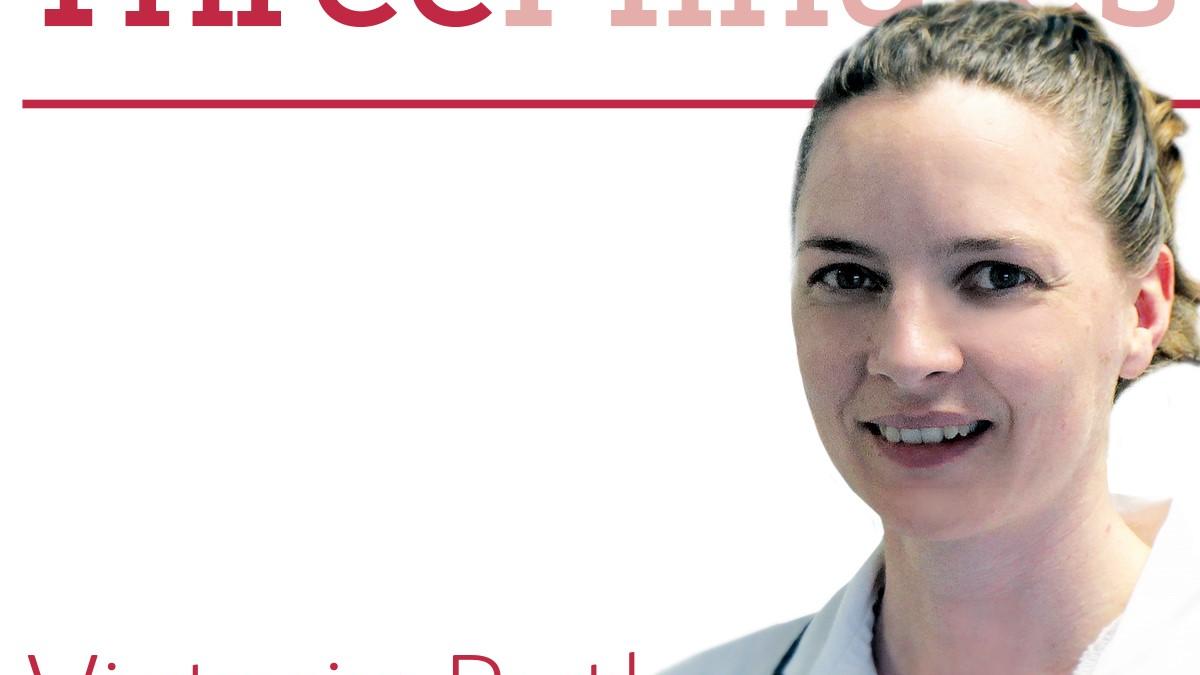Being a 2017 Winston Churchill Memorial Trust fellow gave physio Victoria Butler the chance to visit falls prevention pioneers in Australia and New Zealand.

What sparked your interest in falls?
I was involved in running a falls-prevention class based on Otago exercises, a community falls programme that was developed in New Zealand. I realised it wasn’t enough to offer a six-week course if the functional gains were not maintained and became interested in enabling people to maintain the benefits. I also identified that patients were more at risk of falls after a stroke and no single falls programme reduced this risk.
Tell us about your fellowship
The Winston Churchill Memorial Trust funds British citizens to investigate inspiring practice in other countries and return with innovative ideas. I was awarded a fellowship, in partnership with the Burdett Trust for Nursing, to investigate community stroke rehabilitation and falls programmes in Australia and New Zealand. I wanted to look at how falls programmes were implemented there to promote lifestyle changes and improve physical activity levels.
In New Zealand I investigated innovative falls-prevention practices at Mercy Parklands Hospital, Auckland, where the Spark of Life philosophy has been embedded within care. This is a systematic, practical approach to dementia that aims to provide better care and communication, and address emotional needs. Patients can have cognitive deficits after a stroke and using a holistic approach may be a way to engage them in physical activity and, potentially, reducing falls risk.
Australia has a strong background in falls and stroke research and in the implementation of falls-prevention programmes on a state-wide scale. I met the developers of the Stepping On programme, an evidence-based initiative funded by New South Wales Health – I was interested in learning how this worked in a community setting.
What key things did you learn?
Community falls programmes that incorporate educational components and behavioural changes, with an emphasis on functional goals specific to the person and with a social aspect, appear to engender more engagement. Physiotherapists are in an ideal position to work preventively, and to provide support and training to existing exercise providers in the community and voluntary sector. They can offer those providers extra skills to cope with an ageing population and people with reduced mobility – after a stroke, for example. Early identification and appropriate interventions in the primary care system may be a way of reducing or managing falls to enable patients to access services in a timely manner.
Healthcare, community and voluntary sector services need to be working in partnership, with an emphasis on maintaining a healthy population and identifying ways of incorporating physical activity that promotes strength and balance into everyday life. The Lifestyle-Integrated Functional Exercise (LiFE) programme, developed by Lindy Clemson and colleagues at Sydney University, could be used to enable older adults to improve their mobility and balance within their own homes.
How can the UK match the best of what you saw?
No single falls intervention has been shown to reduce the risk of falls after stroke, which suggests that an exercise-only intervention is not effective and is only one component. Educating patients and enabling them to problem-solve their own environment may improve understanding of falls risk but a tailored approach must be applied.
How can you put all this into practice?
I would like to improve falls-risk education for people who have had a stroke and implement the LiFE programme in an appropriate stroke population.
What’s your message to others?
Physiotherapists are ideally placed to provide support to people who have survived a stroke, and to community and leisure providers, driving a collaborative process to enable implementation of suitable falls interventions. We can be a key contact between the healthcare system and leisure, community and social care providers.
- Dr Victoria Butler is based on the stroke ward, North Tees and Hartlepool NHS Trust
You can apply for next year’s fellowships from 27 April. Details are available at www.wcmt.org.uk
Author
Dr Victoria Butler North Tees and Hartlepool NHS Trust
Number of subscribers: 1
